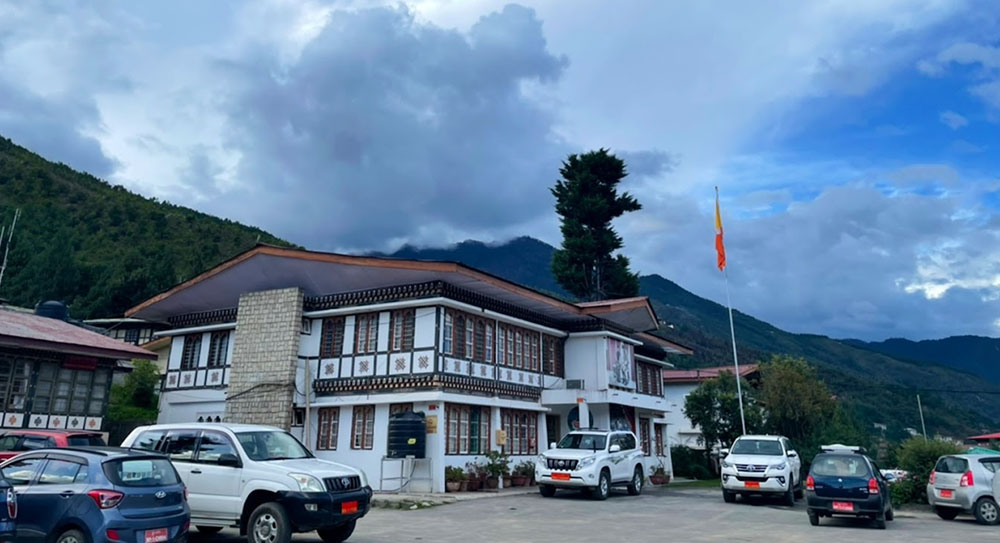Yangyel Lhaden
Students across many schools who have seen teachers resign in droves for better opportunities are left experiencing a void. Those in Thimphu said that replacements have been made but the hurt left from severing bonds takes time to heal.
As more teachers leave, it only complicates matters for those young minds.
“It is disheartening every time a teacher leaves,” a 15-year-old student Enchu Dema of Changangkha Middle Secondary School (CMSS) said.
Last year, Enchu Dema’s Chemistry and Mathematics teachers left the school. Her Biology teacher resigned this year.
Between January and May this year, about 531 teachers have exited the profession. Of that, 416 teachers resigned voluntarily. That is on average more than 83 teachers resigning voluntarily every month.
In Thimphu Thromde alone, as of September 15 this year, 211 teachers left the schools. Between 2021 and 2022, 173 teachers resigned.
“It is disheartening when a teacher, who enters the classroom with a warm smile, teaches us well, and looks happy with the job, suddenly departs,” Pema Kuntu Zangmo, a class nine student said.
Tshokjin Lhamo, a class 10 student, said that she was trying to empathise with teachers who were leaving because there were a lot of things going on at the government level and societal pressures the teachers were under.
“But what about us? We are still learning, and after they leave, learning is not easy with new teachers,” she said.
Last year, three different Chemistry teachers taught her class.
Another Class 10 student said that those teachers who left were talented. “I am sad because their talent is going to waste, although I understand they are pursuing better opportunities.”
Pema Losel, a class nine student, said that students arranged a small farewell for the Biology teacher earlier this year. “We all cried. One of us asked if she could stay. She smiled at us.”
“I miss her teaching and I wish she could come back,” Pema Losel said.
Teacher shortage
To address the teacher shortage, Thimphu Thromde recruited 122 national contract teachers, 12 with a post-graduate diploma in education, six teachers from extraordinary leave resumed office, and 140 teachers were recruited through RCSC and thromde.
Yangchenphug Higher Secondary School (YHSS) Principal, Yesh B Ghaley, said that the thromde had been proactive, and they didn’t have to wait long for a new teacher to be sent. “About 10 teachers left this year, with many more in the pipeline for next year.”
Lungtenzampa Middle Secondary School (LMSS) Principal, Dawa Tshering said that there was no teacher shortage. However, the long-term situation remains uncertain due to the ongoing departures of teachers. “We will have a clearer picture after the February intake for Australian admissions.”
Earlier this year, three out of nine Mathematics teachers left LMSS. Before receiving replacements from the thromde, Dawa Tshering said, the school conducted online classes, using smart televisions to teach Mathematics in three classes simultaneously.
Concern beyond shortage
Principal of CMSS, Nyendo said that filling the teacher shortage was not a problem. “The concern lies in the quality, content delivery, and experience that we are losing.”
“New teachers recruited on contract are not robots. They can’t simply enter the classroom and start teaching,” Nyendo said. “The bond between a teacher and a student is sacred and takes time to build.”
“But what choice do we have? It is better to have something than nothing,” he said.
Nyendo said, “Some national contract teachers are exceptionally good and even better than trained ones.”
CMSS conducts training for new teachers recruited and accompanied by trained teachers. They are given basic training to interact with children with disabilities. “CMSS is an inclusive school, so training new teachers is important,” Nyendo said.
Enchu Dema said that while many have left, there were still dedicated teachers. “I believe they are strong and resilient, and we need them to stay.”
Students said that the system needs to do something to retain existing teachers.
Some suggested that the education ministry should make the teaching profession more attractive not only in terms of pay.


